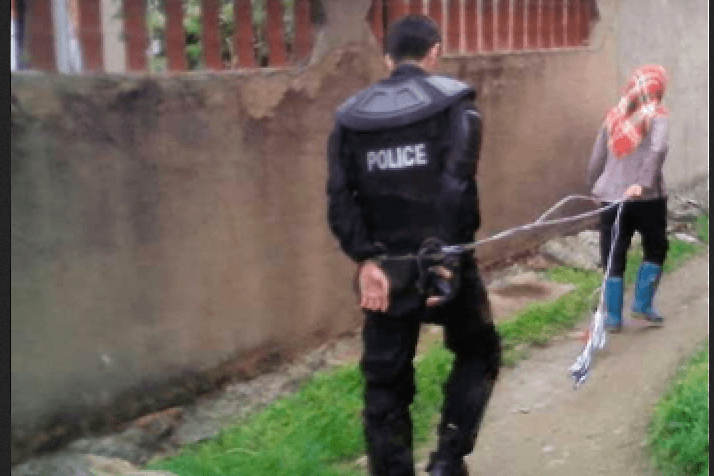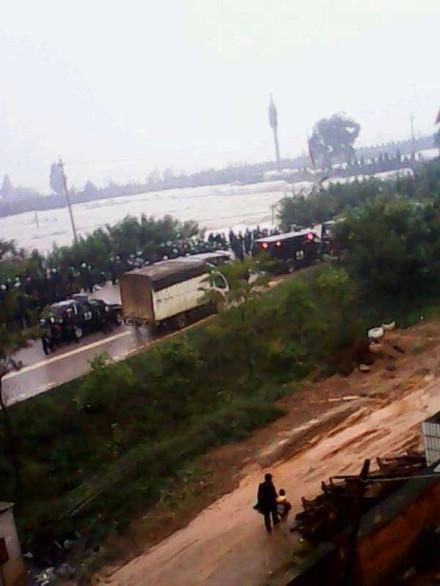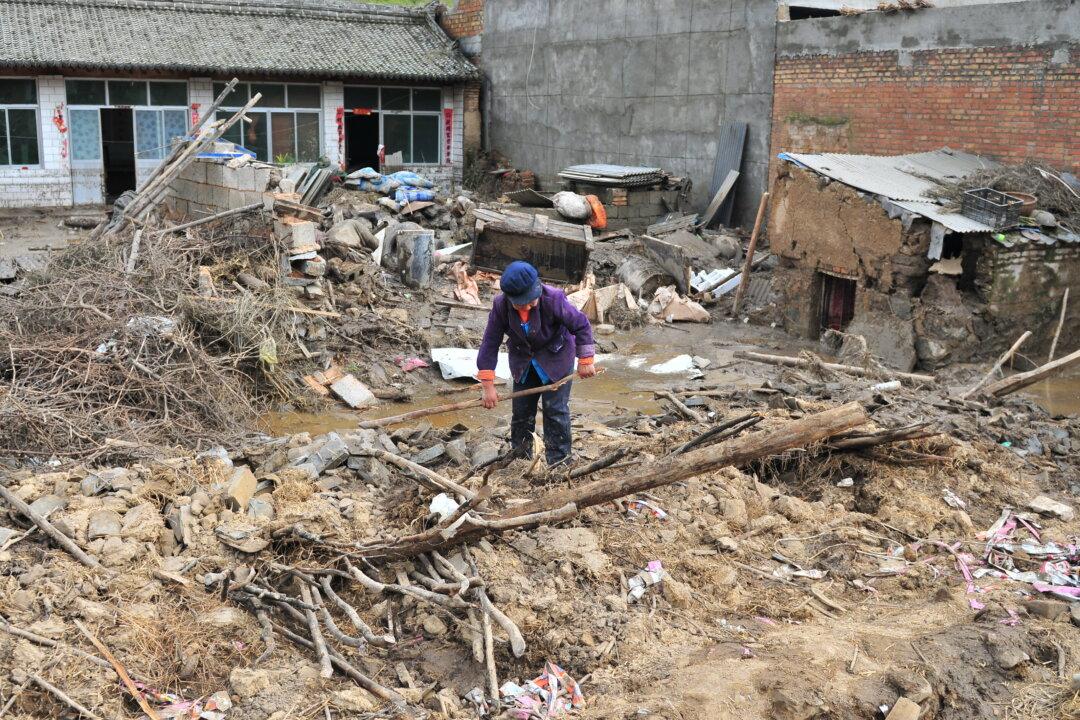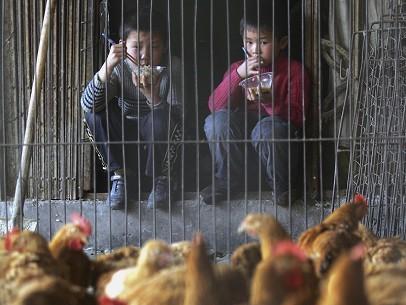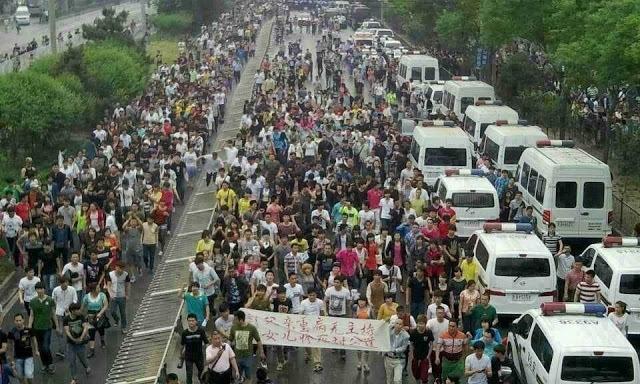A three-day stand-off between migrant workers and police in southern China’s Guangdong Province resulted in both sides taking “prisoners.” The outcome of the clash is still undetermined, but is indicative of China’s declining social stability.
The incident began on July 6, when out-of-town migrant workers in Gaozhou, Guangzhou City, Guangdong Province, injured a local villager while driving a harvester. Arguments and a fight broke out, resulting in injuries sustained on both sides, and the migrant workers’ harvester being smashed, according to a report by Oriental Interaction.
Police subsequently took the migrant workers to the police station for questioning. Other migrant workers then mobilized dozens of their townsmen, who came on dozens of harvesters and proceeded to storm the police station to free the detained workers.
They smashed the office desk and computer in the duty room of the police station and took away two of the police officers who were on duty, Police apprehended several of the migrant workers during the night, arresting them and freeing the two captive police officers.
Official news reports did not disclose details or specific reasons why the migrant workers went against the police station, leaving the public to speculate.
“Would the migrant workers rush into the police station if there are no substantial reasons?” one netizen asked.
By 8 a.m. on July 7, nearly one hundred harvesters were lined up in front of Gaozhou city hall, with migrant workers demanding the release of the arrested workers.
In response, Gaozhou authorities again deployed a large number of police.
Increased Unrest
During the past 30 years, the Chinese Communist Party has derived its legitimacy from promises of economic growth and wealth. People with connections to the Party hierarchy indeed became very wealthy. But very little has trickled down to the hundreds of millions of peasants and migrant workers who are still living in poverty and are a major source of social instability.
As China’s economic performance declines, social stability is declining more rapidly. During the past several years, China has seen hundreds of protests, small and large, each day. Now clashes between citizens and authorities are becoming more pronounced.
Villagers are fighting ever more fiercely against land grabs and forced demolition by corrupt party officials as well as pollution of land and drinking water, and dozens of other grievances, including an unresponsive judicial system.
On June 30, clashes occurred between city officials and residents in Lianzhou City, Guangdong Province. As local villagers tried to stop a construction project, they got into a fierce stand-off with police and the construction team. In the process, a police car was overturned and construction vehicles were also damaged.
On the same day, Wang Caiying, a villager in Fuyang City, Anhui Province, protested against unreasonable demolition compensation by committing suicide in front of the demolition office. Afterwards, members of Wang’s family placed his body in the middle of the road as their protest continued. Authorities deployed hundreds of people to remove the body, resulting in a violent clash with the villagers who defended themselves by throwing bricks.
On June 26, locals attacked police and government offices in Shanshan and Turpan of Xinjiang Province. The conflict resulted in 27 casualties, including nine police officers and security personnel.
On the evening of June 13 a large-scale violent protest ensued in Nanning City, Guangxi Province, following a traffic accident. According to residents, nearly ten thousand people gathered to assist a taxi driver who was injured by a driver of a military vehicle. People torched the military vehicle and smashed and overturned several police cars.
On May 11, the government illegally expropriated about 5,000 acres of land near the sea in Quanzhou, Fujian Province, without consulting villagers. They paid out what people called “unreasonable compensation,” and repeatedly injured villagers. Nearly a thousand villagers participated in protests. They captured a special force police officer and paraded him through the streets.
Translation by Irene Luo. Research by Lisa Huang. Written in English by Gisela Sommer.
Read the original Chinese article.
